Playful screams and shouts greet me as I get out of the car at Free Range Kids in Croom, Co Limerick.
Threatening grey clouds seem to have no impact on two four-year-old girls as they zoom past me in their wellies, while further on I can see groups of children busy building in a sandpit or investigating the activity of a flock of hens.
This is all part of what pre-school owner and part-time farmer Jo Flinn calls “play-based learning”.
“The Montessori method is great but it can be a bit restrictive,” Jo explains over a cup of tea in her kitchen.
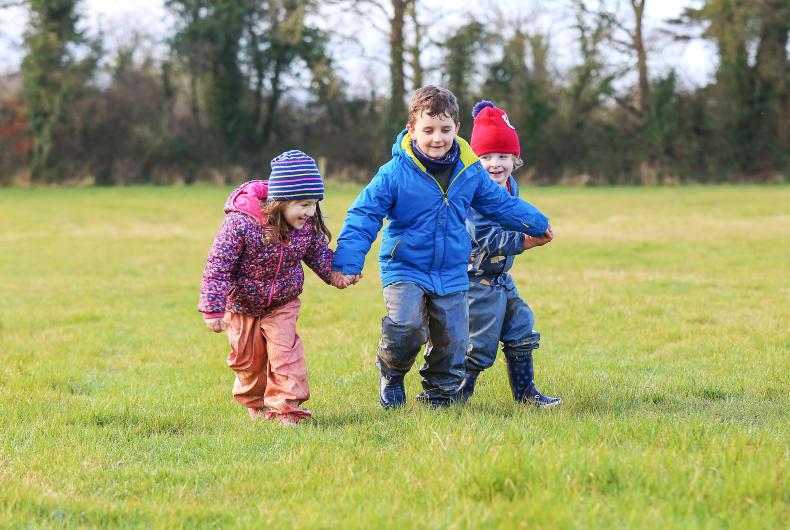
Some of the students at Free Range Kids. \ Odhran Ducie
“This goes one step further. Children have 12 to 13 years ahead of them of study and homework so we feel it’s really important to start work on the big muscle groups. All the children climb, run, swing and gradually that balances off to do more fine motor activities like reading and writing.
“I think it’s one of our big strengths because primary schools report back that the kids they get from our pre-school are very resilient and not afraid to go out in all kinds of weather.”
From the kitchen, we can still hear the happy shouts of children playing outside. Jo has converted stone outbuildings and her farmyard, with fields and a forest path also developed into child friendly zones.
She speaks passionately about the importance of children finding foxholes and picking blackberries, as well as collecting eggs and making the farm-to-fork connection for themselves. 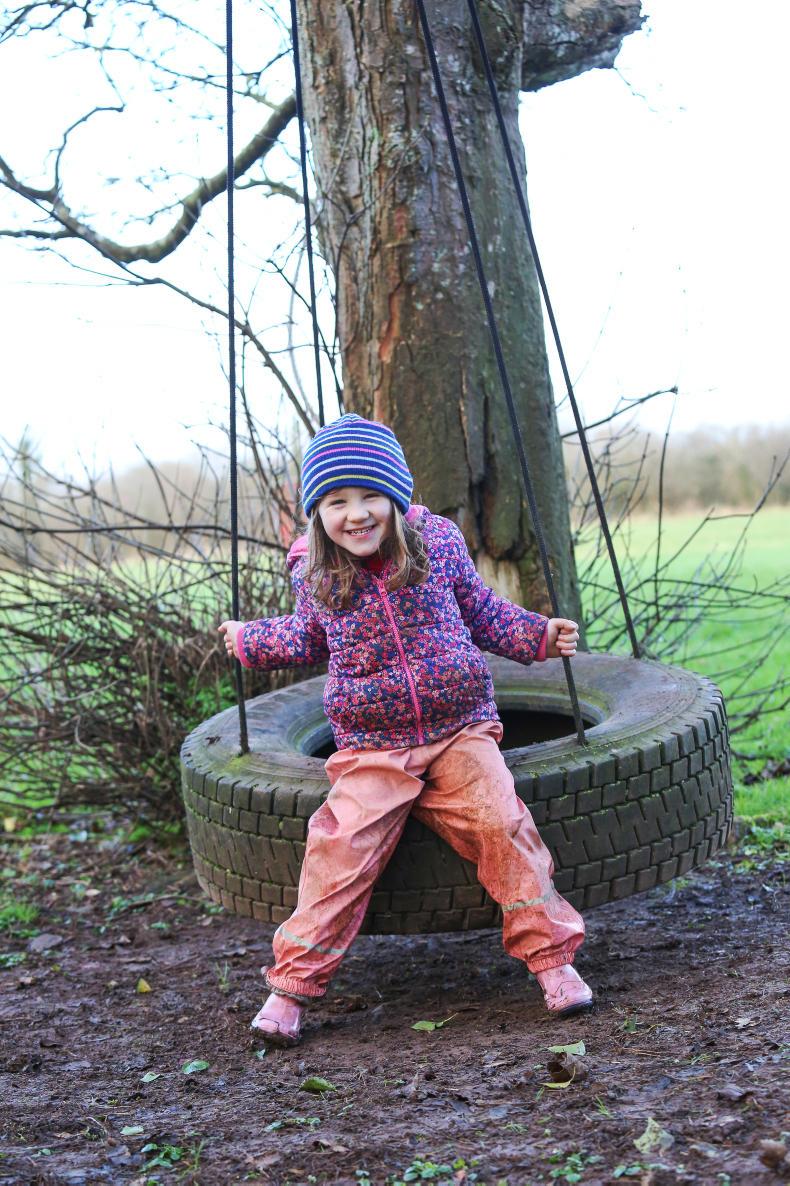
With the latest Growing Up in Ireland research this January showing that up to 20% of five year olds are obese, Jo has been ahead of the curve in realising the importance of getting kids active.
“Children are so interested in science and exploring, they often pick things up better from experiencing them than a book,” she says.
“All the movement also helps with any behaviour issues some kids might be having.
“Last Friday, we had a campfire and made scrambled eggs with the eggs the children had collected. They absolutely loved it and were fascinated by the process.
“In the summer we make sure we have more animals on the farm, including ducks and a cow and calf.
“They take great ownership and great pride in knowing the animals and feeding them.
“I think it gives the children a better understanding and more empathy towards animals.”
Originally from Dublin, in the 1980s when she was newly married, Jo and her husband moved to America for his work. Based in California, she noticed that the pre-school her two eldest children were in had a play-based approach.
“I just loved the way the kids could go inside and outside,” she explained.
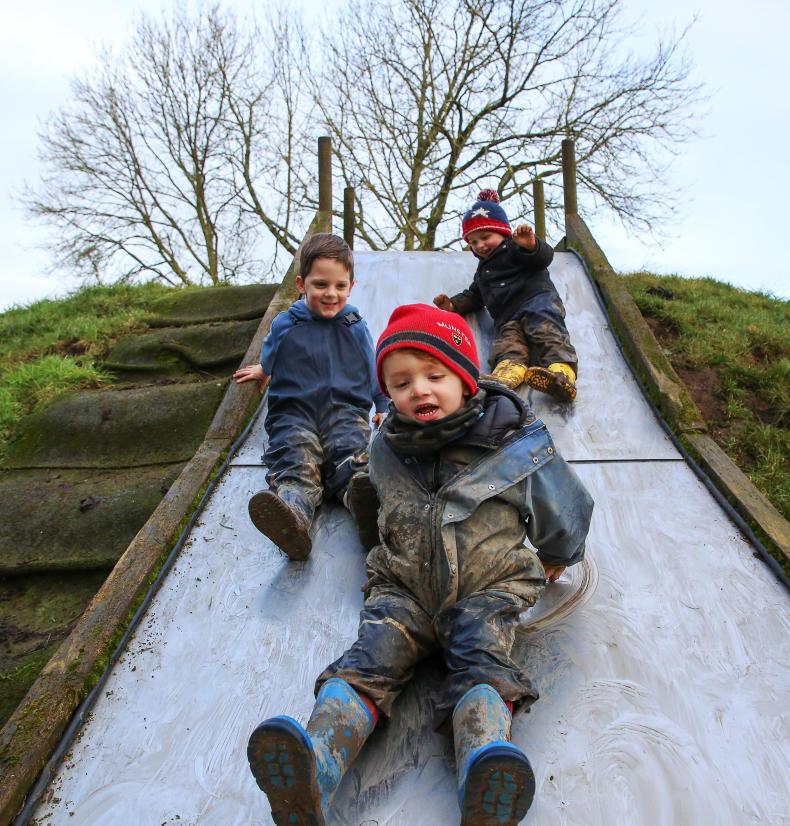
With 12 or 13 years of traditional teaching methods ahead of the children, Jo places a lot of emphasis on play-based learning. \ Odhran Ducie
“My kids absolutely loved it and I said myself, ‘One day I’ll do this back home in Ireland’.”
Returning to Ireland in 1990, her family settled on a small farm in Limerick. Jo recalls how most pre-schools in the country were just a room in someone’s house and she was determined her own children would have access to animals and the great outdoors.
Despite her experience of raising her own family, she admits she was nervous of the idea of starting a pre-school but agreed to start small after two parents implored her to take on their kids. Word of mouth spread quickly and from four kids in 2007, she now has over 100 on her books and is employing over 20 staff from the local area.
The mother of seven children, even a brief encounter with Jo will tell you that the true secret to her success isn’t just her idea of promoting play-based learning but also the warmth and respect she treats all the children under her care with.
She’s famous among staff for remembering not just every child’s name but their parents as well. To this day, she still has an encyclopaedic knowledge of the hundreds of children that passed through the gates of Free Range Kids.
Autism
Despite her wealth of knowledge and experience Jo admits she struggled when her youngest daughter Amy was diagnosed with autism.
“I’ll put my hand up and say I knew nothing about autism,” she admits.
“I went around in circles for about five years trying to figure out what it was with her.”
Jo explains her daughter’s speech was delayed and she had a lot of issues including bed wetting and meltdowns that Jo just couldn’t understand. 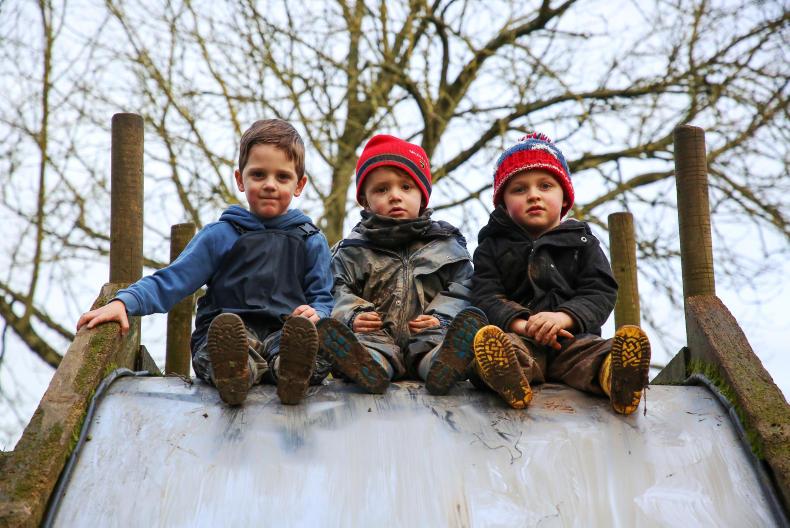
Eventually when Amy was eight they got a diagnosis of autism, but even then Jo says it was an uphill battle to get help for her.
“It was only when I started reading about it, then I started getting more of an understanding, and even then it was difficult to get a diagnosis. And then it’s more difficult to get any help, and you don’t know really what sort of direction to go to for help and people send you to speech therapy.
“A half an hour of speech therapy, once a week is not massively helpful to a child that’s on the spectrum that have all sorts of issues.”
She says school was hugely difficult for her daughter as well.
“She would come home and scream on the couch, because she had to do homework, and she couldn’t take all the pressure,” Jo explains.
“Children with autism tend to need a lot of order to regulate themselves. I used to have to bring her outside and push her on the swing for hours in the evening to calm her down.”
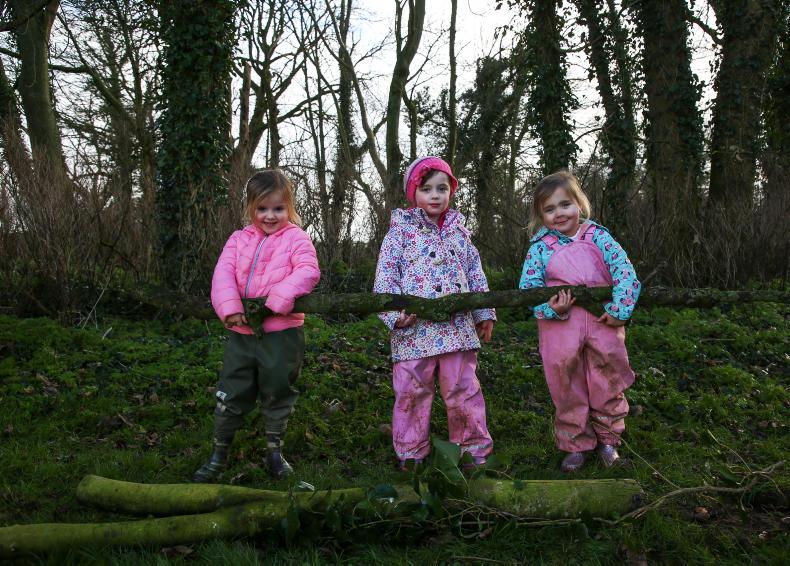
Having started in 2007 with just two kids in the pre-school, Jo now has over 100 kids. \ Odhran Ducie
Over 10 years later and a lot of hard work from Jo and her daughter is thriving and studying photography at a college in Dublin.
Her experience has made her a support point for parents going through similar experiences.
Jo expresses her frustration that children with autism are often just labelled as “bold” when she feels that there hasn’t been enough investment in resources. “It’s quite a struggle for parents, because you know your own child. You know they’re not just being bold and you’re there to figure out what it is and it’s just so difficult.
“I’ve heard so many stories and I’ve had people come here in tears regularly, trying to just know what to do. So it really is actually a massive problem across Ireland.
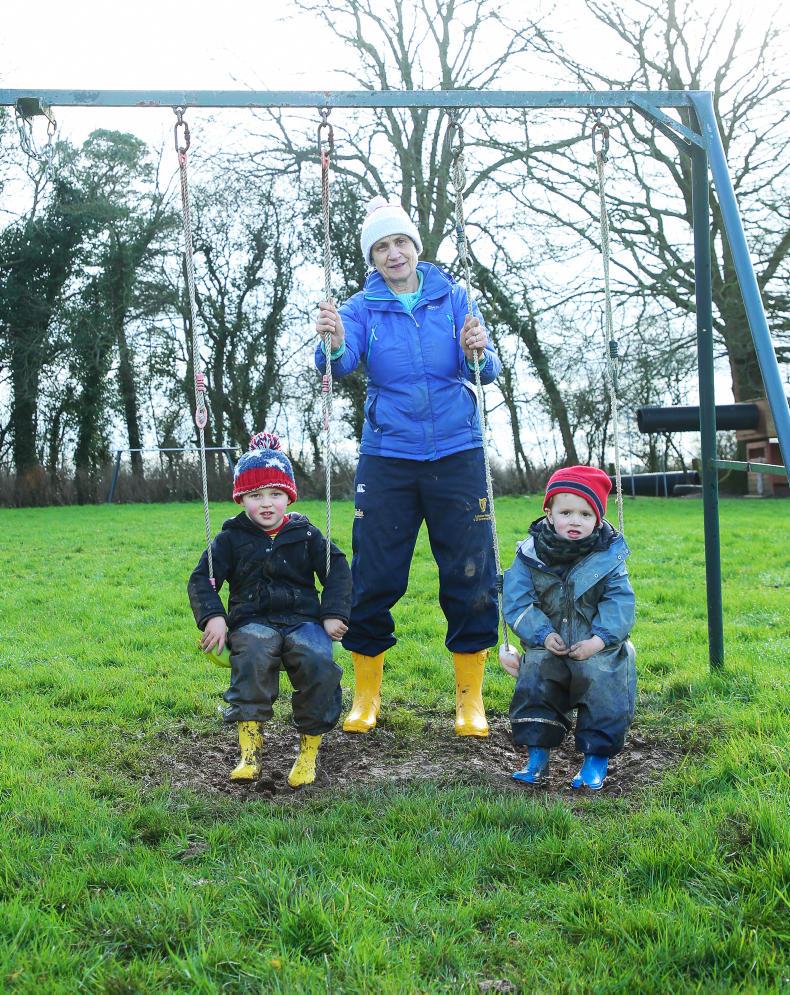
Jo and the kids during play time at Free Range Kids. \ Odhran Ducie
“I know from experience that it’s a very lonely place for people. Often parents lose friends, they have family members constantly giving them good but unhelpful suggestions or criticising them. They’re there with this child that is their most precious possession and they just can’t get a grip on what to do.
“I think with a physical illness, there’s a much more coherent plan available so you know this child has something wrong with them, whether it’s a stomach pain or their appendix. There’s a much more coherent plan between nurses and doctors and if they need physio afterwards and that sort of thing a plan is put in place. Whereas with autism it’s really fragmented, the autism aid places in Ireland do not even connect with each other, to help make a sort of an umbrella group or an overall plan.”
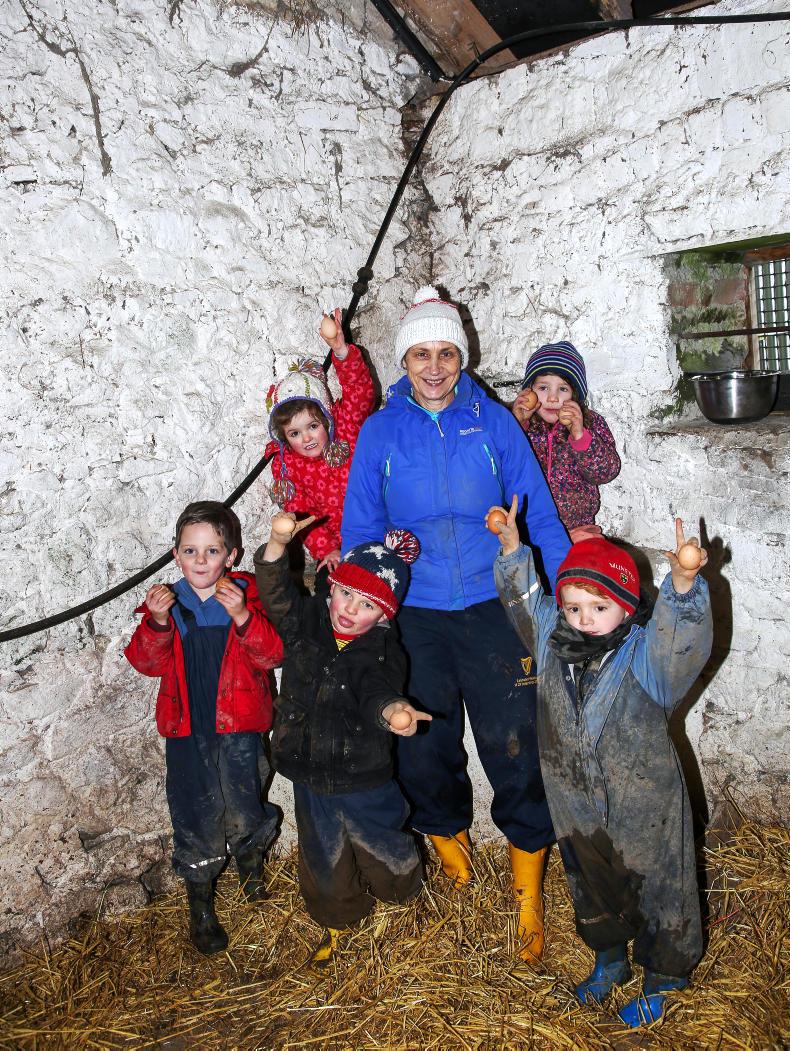
Children learn about where their food comes from at the pre-school.
She says it’s of particular concern for parents in rural areas where help for children with autism can be even more limited and resources more fragmented. For that reason, she’s working to support the US-based Son-rise programme which is holding a workshop in the Castletroy Park Hotel in Limerick from 19 to 23 February. She says it is of great benefit to parents to develop and learn skills to help support their children with autism.
If anyone would like more information on the programme or Free Range Kids you can call Jo on 086-309 9376.
Read more
Higher education options: apprenticeships, traineeships, PLCs and study abroad
‘I want my husband to get in shape, but he won’t’
Playful screams and shouts greet me as I get out of the car at Free Range Kids in Croom, Co Limerick.
Threatening grey clouds seem to have no impact on two four-year-old girls as they zoom past me in their wellies, while further on I can see groups of children busy building in a sandpit or investigating the activity of a flock of hens.
This is all part of what pre-school owner and part-time farmer Jo Flinn calls “play-based learning”.
“The Montessori method is great but it can be a bit restrictive,” Jo explains over a cup of tea in her kitchen.

Some of the students at Free Range Kids. \ Odhran Ducie
“This goes one step further. Children have 12 to 13 years ahead of them of study and homework so we feel it’s really important to start work on the big muscle groups. All the children climb, run, swing and gradually that balances off to do more fine motor activities like reading and writing.
“I think it’s one of our big strengths because primary schools report back that the kids they get from our pre-school are very resilient and not afraid to go out in all kinds of weather.”
From the kitchen, we can still hear the happy shouts of children playing outside. Jo has converted stone outbuildings and her farmyard, with fields and a forest path also developed into child friendly zones.
She speaks passionately about the importance of children finding foxholes and picking blackberries, as well as collecting eggs and making the farm-to-fork connection for themselves. 
With the latest Growing Up in Ireland research this January showing that up to 20% of five year olds are obese, Jo has been ahead of the curve in realising the importance of getting kids active.
“Children are so interested in science and exploring, they often pick things up better from experiencing them than a book,” she says.
“All the movement also helps with any behaviour issues some kids might be having.
“Last Friday, we had a campfire and made scrambled eggs with the eggs the children had collected. They absolutely loved it and were fascinated by the process.
“In the summer we make sure we have more animals on the farm, including ducks and a cow and calf.
“They take great ownership and great pride in knowing the animals and feeding them.
“I think it gives the children a better understanding and more empathy towards animals.”
Originally from Dublin, in the 1980s when she was newly married, Jo and her husband moved to America for his work. Based in California, she noticed that the pre-school her two eldest children were in had a play-based approach.
“I just loved the way the kids could go inside and outside,” she explained.

With 12 or 13 years of traditional teaching methods ahead of the children, Jo places a lot of emphasis on play-based learning. \ Odhran Ducie
“My kids absolutely loved it and I said myself, ‘One day I’ll do this back home in Ireland’.”
Returning to Ireland in 1990, her family settled on a small farm in Limerick. Jo recalls how most pre-schools in the country were just a room in someone’s house and she was determined her own children would have access to animals and the great outdoors.
Despite her experience of raising her own family, she admits she was nervous of the idea of starting a pre-school but agreed to start small after two parents implored her to take on their kids. Word of mouth spread quickly and from four kids in 2007, she now has over 100 on her books and is employing over 20 staff from the local area.
The mother of seven children, even a brief encounter with Jo will tell you that the true secret to her success isn’t just her idea of promoting play-based learning but also the warmth and respect she treats all the children under her care with.
She’s famous among staff for remembering not just every child’s name but their parents as well. To this day, she still has an encyclopaedic knowledge of the hundreds of children that passed through the gates of Free Range Kids.
Autism
Despite her wealth of knowledge and experience Jo admits she struggled when her youngest daughter Amy was diagnosed with autism.
“I’ll put my hand up and say I knew nothing about autism,” she admits.
“I went around in circles for about five years trying to figure out what it was with her.”
Jo explains her daughter’s speech was delayed and she had a lot of issues including bed wetting and meltdowns that Jo just couldn’t understand. 
Eventually when Amy was eight they got a diagnosis of autism, but even then Jo says it was an uphill battle to get help for her.
“It was only when I started reading about it, then I started getting more of an understanding, and even then it was difficult to get a diagnosis. And then it’s more difficult to get any help, and you don’t know really what sort of direction to go to for help and people send you to speech therapy.
“A half an hour of speech therapy, once a week is not massively helpful to a child that’s on the spectrum that have all sorts of issues.”
She says school was hugely difficult for her daughter as well.
“She would come home and scream on the couch, because she had to do homework, and she couldn’t take all the pressure,” Jo explains.
“Children with autism tend to need a lot of order to regulate themselves. I used to have to bring her outside and push her on the swing for hours in the evening to calm her down.”

Having started in 2007 with just two kids in the pre-school, Jo now has over 100 kids. \ Odhran Ducie
Over 10 years later and a lot of hard work from Jo and her daughter is thriving and studying photography at a college in Dublin.
Her experience has made her a support point for parents going through similar experiences.
Jo expresses her frustration that children with autism are often just labelled as “bold” when she feels that there hasn’t been enough investment in resources. “It’s quite a struggle for parents, because you know your own child. You know they’re not just being bold and you’re there to figure out what it is and it’s just so difficult.
“I’ve heard so many stories and I’ve had people come here in tears regularly, trying to just know what to do. So it really is actually a massive problem across Ireland.

Jo and the kids during play time at Free Range Kids. \ Odhran Ducie
“I know from experience that it’s a very lonely place for people. Often parents lose friends, they have family members constantly giving them good but unhelpful suggestions or criticising them. They’re there with this child that is their most precious possession and they just can’t get a grip on what to do.
“I think with a physical illness, there’s a much more coherent plan available so you know this child has something wrong with them, whether it’s a stomach pain or their appendix. There’s a much more coherent plan between nurses and doctors and if they need physio afterwards and that sort of thing a plan is put in place. Whereas with autism it’s really fragmented, the autism aid places in Ireland do not even connect with each other, to help make a sort of an umbrella group or an overall plan.”

Children learn about where their food comes from at the pre-school.
She says it’s of particular concern for parents in rural areas where help for children with autism can be even more limited and resources more fragmented. For that reason, she’s working to support the US-based Son-rise programme which is holding a workshop in the Castletroy Park Hotel in Limerick from 19 to 23 February. She says it is of great benefit to parents to develop and learn skills to help support their children with autism.
If anyone would like more information on the programme or Free Range Kids you can call Jo on 086-309 9376.
Read more
Higher education options: apprenticeships, traineeships, PLCs and study abroad
‘I want my husband to get in shape, but he won’t’











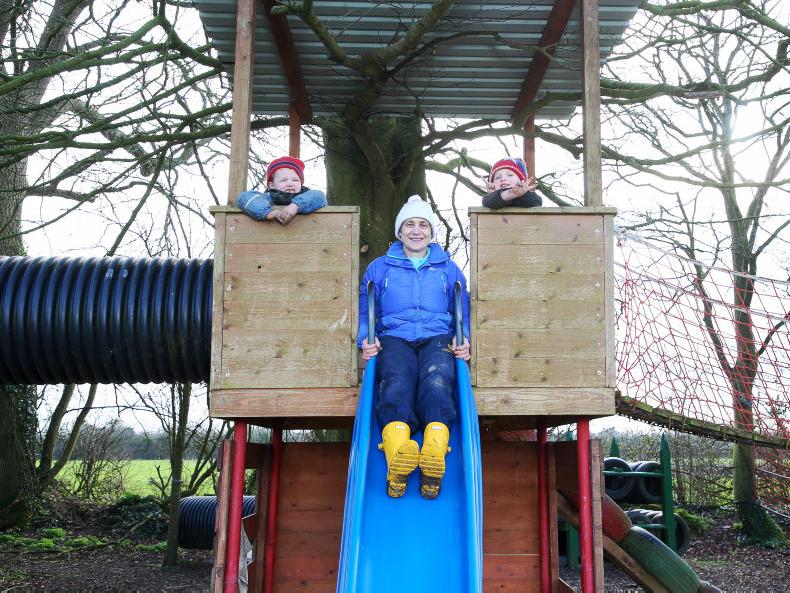
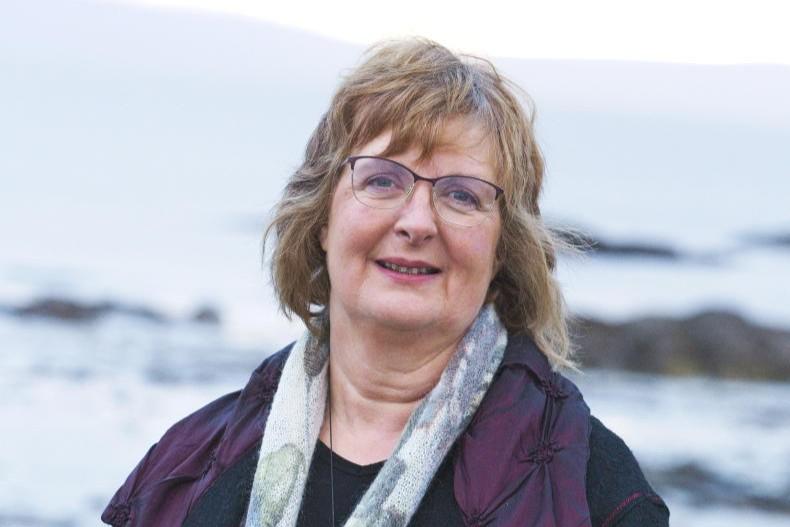
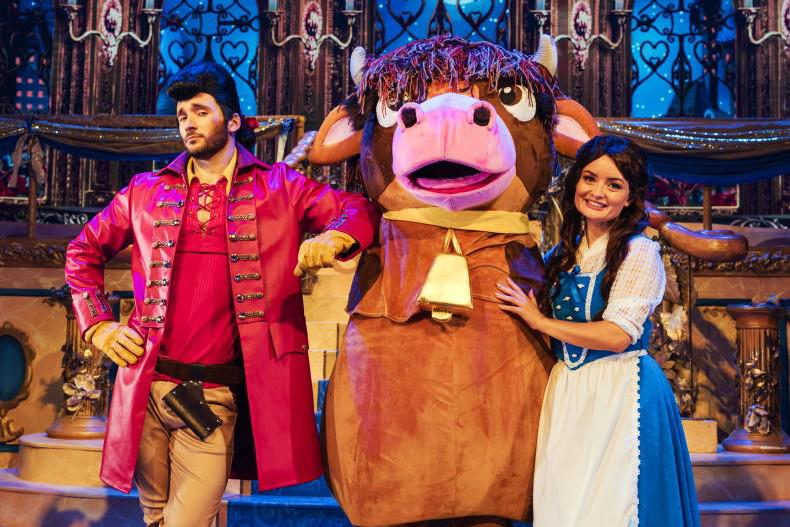
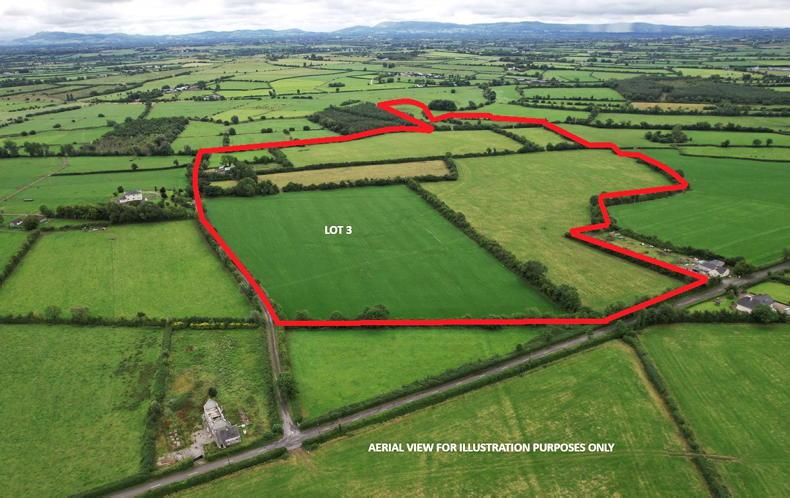

SHARING OPTIONS